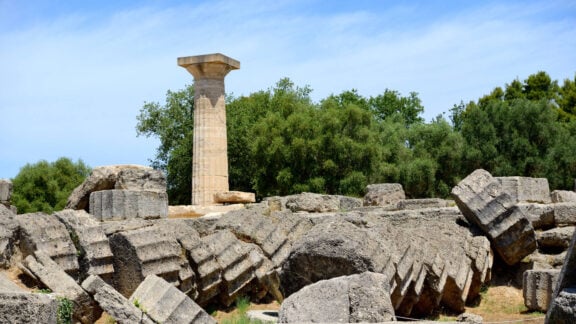The University of Sydney’s Australian Archaeological Institute at Athens (AAIA) in collaboration with the Inner West Council of Sydney will commemorate Oxi Day on Sunday, 30 October at the Marrickville Town Hall.
The event will take place with the support of the Joint Committee of the Battle of Crete, the Cretan Association of NSW and Glebe Books of Dulwich Hill.
Following a wreath-laying ceremony, a panel discussion will be held with award-winning author Kate Forsyth on her recent novel The Crimson Thread, a historical fiction inspired by the ancient myth of the Minotaur interwoven with the story of the Nazi occupation of Crete.
As part of the discussion, archaeologist and WWII expert Dr Michael Bendon, will discuss his underwater archaeological work in Crete and his book Forgotten Flotilla alongside Professor Julia Horne, University Historian (Sydney) and co-director of ‘Beyond 1914’.
The panel discussion will focus on the 1940-1941 campaigns and the endearing relationship forged between Australia and Greece as a result.
October 1940 marks a milestone date in the relationship between Australia and Greece after the latter defied Mussolini’s ultimatum and entered World War II on 28 October.
The successful repulsion of the Italian invasion led to the arrival of Australian troops, alongside British and New Zealand forces, in Greece in anticipation of the inevitable attack from Nazi Germany.
Outnumbered and in the face of a better-equipped onslaught the Allied forces undertook the Greek and Cretan campaigns.
From late October 1940 until early June 1941 Allied troops were evacuated from Crete. In these adverse circumstances deep bonds of comradeship and respect developed between the Greeks and Australians.
In many instances these bonds only grew during the Occupation when Greeks helped hide many Allied troops and both cooperated in their resistance against the occupying forces.
When: Sunday, 30 October from 1pm for a 1.30pm start – 4pm
Where: Marrickville Town Hall, 303 Marrickville Road, Marrickville, NSW







